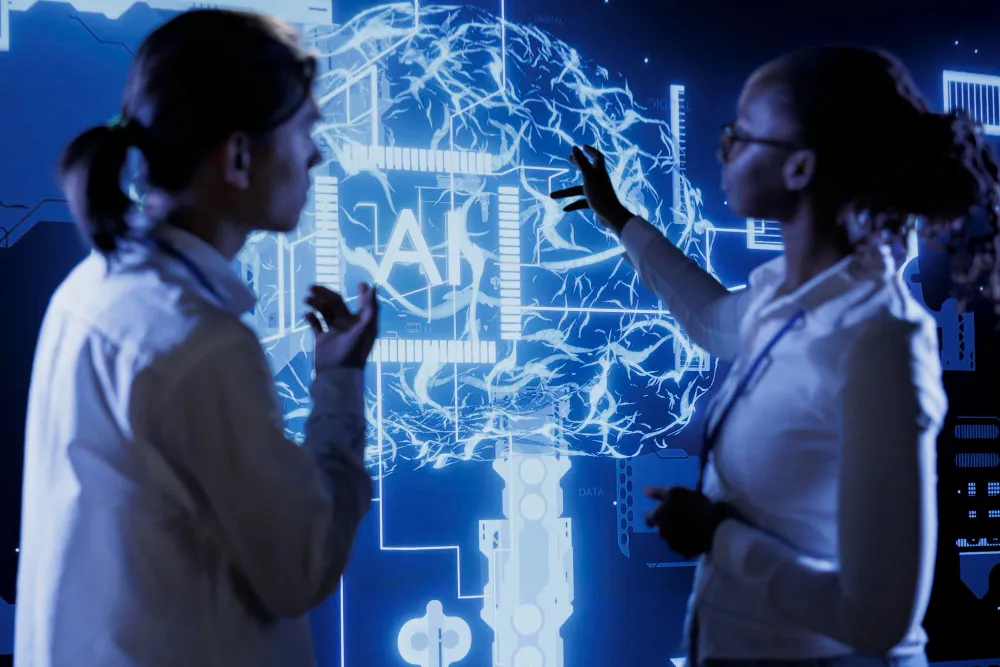Artificial Intelligence (AI) is no longer just a concept confined to the realms of science fiction; it has become an integral part of our daily lives, revolutionizing industries, and reshaping the way we interact with technology. From enhancing business processes to driving innovation in healthcare, AI's influence is pervasive and growing rapidly. This blog post delves into the transformative power of AI, exploring its current applications, future potential, and the challenges that come with its widespread adoption.
The Ubiquity of AI in Modern Life
AI has permeated various aspects of our lives, often in ways that we might not even realize. Whether it's the recommendation algorithms on our favorite streaming platforms, the smart assistants in our homes, or the predictive text in our messaging apps, AI is working behind the scenes to make our lives more convenient and personalized. In the business world, AI is being used to automate routine tasks, analyze vast amounts of data, and provide insights that drive decision-making. For instance, in the finance sector, AI algorithms can detect fraudulent activities and predict market trends with remarkable accuracy.
AI in Healthcare: A Game-Changer
One of the most promising applications of AI is in the healthcare industry. AI-powered tools are being used to diagnose diseases more accurately and at earlier stages than ever before. For example, AI systems can analyze medical images, such as X-rays and MRIs, to detect anomalies that might be missed by the human eye. Additionally, AI is being used to develop personalized treatment plans based on a patient's unique genetic makeup and health history. This level of precision medicine has the potential to improve patient outcomes and reduce healthcare costs significantly.
AI is also making strides in drug discovery, with algorithms capable of sifting through vast datasets to identify potential drug candidates in a fraction of the time it would take using traditional methods. This accelerated pace of discovery could lead to faster development of treatments for diseases that currently have limited therapeutic options.
The Future of AI: Opportunities and Challenges
As AI continues to evolve, its potential applications are virtually limitless. From autonomous vehicles to AI-driven education systems, the future promises a world where AI plays an even more central role in our lives. However, with this potential comes a host of challenges that must be addressed.
One of the primary concerns surrounding AI is the ethical implications of its use. As AI systems become more autonomous, questions arise about accountability and decision-making. For instance, in the case of autonomous vehicles, who is responsible in the event of an accident? Additionally, there are concerns about privacy and data security, as AI systems often require access to vast amounts of personal information to function effectively.
Another challenge is the impact of AI on the job market. While AI has the potential to create new jobs and industries, it also has the potential to displace workers in certain sectors. It is essential to ensure that the workforce is equipped with the necessary skills to thrive in an AI-driven economy.
Conclusion
AI is undoubtedly one of the most transformative technologies of our time. Its ability to analyze data, automate processes, and make intelligent decisions is revolutionizing industries and improving our daily lives. However, as we continue to integrate AI into more aspects of society, it is crucial to address the ethical, social, and economic challenges that come with it. By doing so, we can harness the full potential of AI to create a future that is both innovative and inclusive.
4o





















